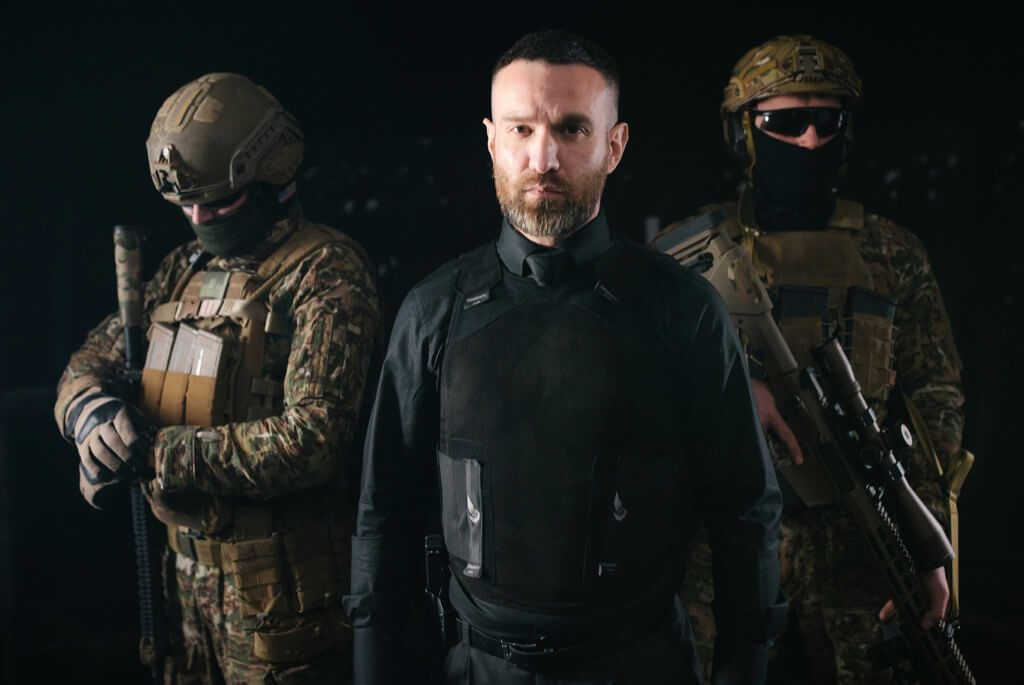Trends and Insights To South Africa’s Private Security Boom

South Africa’s security landscape is evolving at an unprecedented rate, with private security playing an increasingly pivotal role in safeguarding both businesses and the general public. As of now, the number of private security personnel in the country exceeds that of law enforcement officers, with over 182,000 private security employees compared to approximately 560,000 police officers. In practical terms, this translates to a ratio of one police officer for every 413 people in the population, while the ratio of private security personnel to citizens stands at one security officer for every 106 people. This article delves deep into the factors driving the burgeoning importance of armed response and private security agencies in South Africa.
The Soaring Demand for Armed Response Services
Among the myriad of private security options available in South Africa, armed response services reign supreme. Armed response teams offer a rapid and effective solution to security concerns, empowering individuals to protect themselves, their families, and their assets. For businesses, these teams ensure the safety of employees and customers alike.
What sets armed response teams apart is their ability to respond swiftly, often outpacing the response times of law enforcement agencies. This agility allows them to arrive at the scene promptly, sometimes even before criminals can flee or inflict further harm. While armed response teams do not possess arrest powers, they can alert the appropriate authorities and help maintain control until official backup arrives.
Specialized Private Security Organizations
South Africa boasts a plethora of licensed private security firms, providing businesses and individuals with a wide array of options. When selecting a provider, it is crucial to consider various factors, including pricing, service quality, experience, and more. By carefully weighing these factors, you can ensure that your home or business receives the highest level of security.
Many private security companies now offer additional services, such as the installation and maintenance of CCTV surveillance systems, as well as access control systems for buildings and vehicles. Seeking advice from local residents can also be beneficial, as certain security firms may have a more extensive presence in specific neighborhoods, affording them deeper insights into local communities and businesses.
Costs of Armed Response in South Africa
While prices may vary, the average monthly cost of armed response for residential properties typically ranges from R400 to R800. The exact price depends on factors like location and the inclusion of additional features like alarm systems. Commercial enterprises generally incur slightly higher costs, falling within the same general price range.
Limitations on the Use of Force in South Africa
Traditional armed response agencies come with limitations, primarily confining protection to the vicinity of homes or businesses and the officers employed by the contracted security company.
The Booming Private Security Sector in South Africa
According to Sidewalk, the rapid growth of South Africa’s private security industry can be attributed to the repercussions of the Covid-19 pandemic. The sector encompasses over 9,000 registered firms, approximately 1.5 million skilled guards, and around 450,000 registered active private security guards.
A significant portion of these security personnel may also have ties to the merged South African police and army. The private security industry offers a wide range of services, including surveillance, protection, armed response, escorting, investigations, and other security-related functions to individuals and businesses nationwide.
Regulation of South Africa’s Private Security Industry
Established in 2002 by Section 2 of the Private Security Industry Regulation Act (Act No 56 of 2001), the Private Security Industry Regulatory Authority (PSIRA) plays a vital role in overseeing the private security sector. The authority derives its strategic direction from the Act and its accompanying regulations.
The primary objective of PSIRA is to protect the constitutional rights of all citizens, including the rights to life, security, and dignity. This is achieved through intelligent marketing, strategic planning, and the regulation of the private security sector. PSIRA strives to promote a lawful private security industry that operates in alignment with constitutional principles and other relevant laws. The authority encourages the development of an open, competent, responsible, equitable, and accessible private security sector.
Adapting to Current Security Trends
In recent years, South Africa has witnessed a surge in violent incidents and criminal activities, largely influenced by the Covid-19 pandemic. As a result, security measures have been heightened, leading to the development of new strategies and solutions for safety and protection.
The private security sector in South Africa is experiencing significant growth, offering increased job opportunities to citizens, despite the country grappling with high levels of unemployment. Over the past eight years, there has been a 14% increase in the number of licensed active security personnel and a 33% rise in registered armed guard companies. These shifts and incidents have prompted the private security sector to adapt to new pattern forecasts, ultimately contributing to a safer future for the nation.
The Convergence of Physical and Cyber Security
We live in an era dominated by digital technology, with an ever-growing number of individuals relying on personal digital devices. Criminals have also adapted, shifting their focus to online theft and cybercrime. As a result, the lines between physical safety and cybersecurity are becoming increasingly blurred.
Security companies are now tasked with safeguarding clients’ data and IT infrastructure, as confidential information is stored online, often referred to as “The Cloud.” This shift underscores the importance of comprehensive security measures that address both physical and digital threats.
The Rise of Drones in Security
Security companies are upgrading their capabilities by incorporating drones into their operations, particularly in suburban areas. However, due to the high costs associated with drones, not all businesses and departments have access to this cutting-edge technology. Drones have proven to be invaluable tools in enhancing security and surveillance efforts.
Navigating Compliance Challenges
Compliance remains a top priority in the private security industry, especially in light of increasing concerns about cybersecurity. Businesses must adhere to various regulations, including the Personal Information Protection and Electronic Documents Act (PoPI Act), the General Data Protection Regulation (GDPR), the Data Security Standard (DSS), and the Payment Card Industry (PCI).
Education and awareness play a pivotal role in achieving compliance. It is crucial for every member of an organization, not just those in IT roles, to understand the significance of maintaining security at all times. Cybersecurity is no longer viewed solely as an IT issue but as a collective responsibility for the entire organization.
South Africa’s armed response and private security industry are undergoing significant transformations driven by evolving security needs, technological advancements, and a shifting threat landscape. As the nation adapts to new security challenges, private security firms and professionals continue to play a crucial role in safeguarding communities and businesses across the country.
